Written by guest authors: Peter Eckart, Jenna Frkovich and Kyu Kang; Data Across Sectors for Health (DASH)
Disclaimer: Moving Health Care Upstream is a collaborative effort originally co-led by Nemours Children’s Health System (Nemours) and the Center for Healthier Children, Families & Communities at the University of California- Los Angeles (UCLA). The views and opinions expressed in this article are those of the author(s) and do not necessarily reflect the official policy or position of Nemours, UCLA or the Moving Health Care Upstream initiative.
Many organizations in the Moving Health Care Upstream network are actively working through the challenges and considerations of cross-sector data sharing. With these organizations in mind, we are dedicating this blog post to a spotlight on the All In: Data for Community Health Network. Read on to learn how you can connect with, and learn from, other cross-sector partnerships via this vibrant, highly valuable network.
Sharing Data Across Sectors to Transform Community Health
All In: Data for Community Health is a learning network of 100+ communities across the U.S. that are testing exciting new ways to systematically improve community health outcomes through multi-sector partnerships working to share data. Much like Moving Health Care Upstream (MHCU), All In is part of a growing movement to tackle the upstream causes of poor health by strengthening connections between health care and other sectors such as housing, social services, and education.
All In was founded on the idea that we can accelerate progress towards addressing social determinants of health if fellow “innovators” and “upstreamists” share and learn from each other’s failures and successes. If you’re facing data sharing challenges in your community and could use extra guidance and support, All In can connect you to the right tools, resources, and expertise to help advance your effort.
How to Join All In
If you’re new to All In, the first step to join is to sign up for the All In online community (allin.healthdoers.org) and create an individual member profile. You’ll gain access to a network of 850+ professionals from local collaborations dedicated to improving health through data sharing. Watch the video overview and join the next All In Office Hours session to learn more.
Five Ways to Engage
- Join the discussion: Notify other All In members about a new event or resource, or ask the community a question by posting it in the Open Forum. The open forum is a great place to make connections and find new thought partners!
- Learn about community projects: Explore the All In directory of over 60 profiles of local multi-sector collaborations that can be filtered based on your interests. Fill out this form if you would like to add your community to the list.
- Sign up for updates: Subscribe to the All In newsletter to stay up-to-date on the latest news, resources, events, and funding/technical assistance opportunities.
- Attend upcoming events: View the All In calendar to participate in technical assistance webinars on a variety of topics and connect with All In at conferences and meetings.
- Subscribe to the All In podcast: Listen along as local leaders discuss how they have tackled data sharing challenges and share what they’ve learned along the way.
Find Relevant Resources
All In regularly releases practical resources to document and share lessons with early innovators. Here are a few that may be of particular interest to MCHU communities:
- All In Webinar Archive: An archive of past webinars on topics including developing data systems for care coordination, using EHR data for community health, measuring social needs and outcomes, and more.
- Unlocking the Value of Data Sharing Series: An overview and framework for reaching out to stakeholders or potential partners from other sectors that may share your interest in collaborating and sharing data to improve community health.
- Health Care Data 101 Guide: An informational guide written for non-health professionals who want to further investigate the health care data available in their local communities.
- How Hospitals and Health Systems Can Move Upstream to Improve Community Health: A report examining how hospitals can foster cross-sector partnerships focused on upstream factors affecting community health outcomes.
Funding Opportunities for All In Members
To further support communities participating in All In, Data Across Sectors for Health (DASH), an All In partner, just announced two new funding opportunities intended to help local collaborations advance their efforts to share and use multi-sector data to improve community health—DASH CIC-START and the DASH Mentor Program. Register for upcoming informational webinars for more information.
Want to Learn More?
For questions, or for more information, please contact [email protected]
